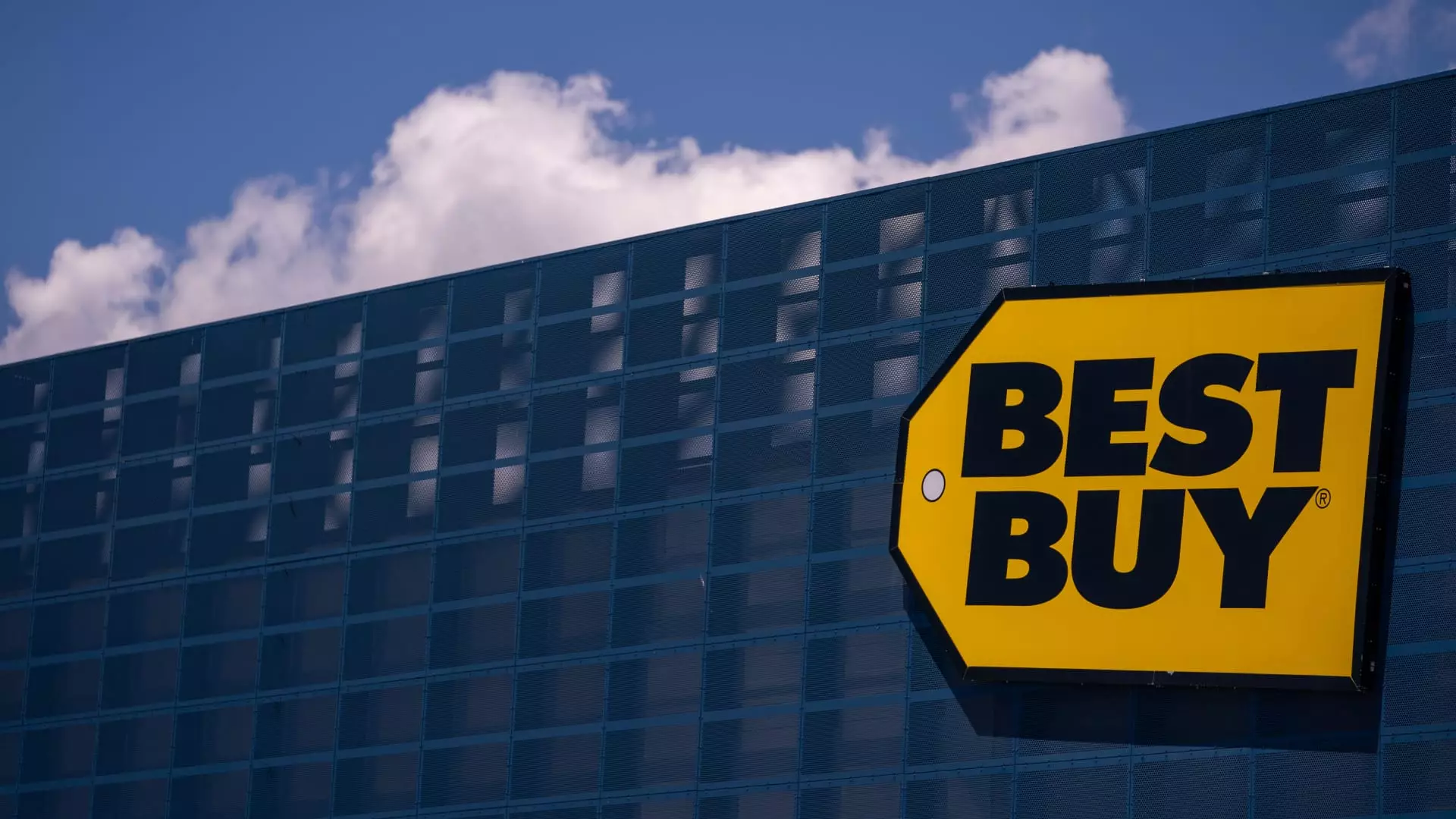The looming prospect of increasing tariffs under a potential second Trump presidency is stirring unrest within the retail sector of the United States. Investors, keenly attuned to trade and tariff policies, find themselves in a precarious position as the election approaches. Goldman Sachs has taken the initiative to analyze which retailers might bear the brunt of these tariff hikes, particularly noting those that rely heavily on imports from China.
Goldman Sachs highlights that American companies sourcing a substantial portion of their goods from China could face significant challenges if tariffs were to escalate, as proposed by Trump. The former president has advocated for aggressive trade policies, including a blanket 20% tariff and a staggering 60% on Chinese goods. This economic strategy raises vital questions about supply chain reliability and costs for retailers dependent on international manufacturing.
One major retailer, Torrid, a plus-size apparel brand that has experienced a dramatic 42% dip in stock value this year, epitomizes the risks involved. Alarmingly, the analysis indicates that a staggering 53% of Torrid’s goods are sourced from China, a number that the company aims to decrease by only targeting mid-teen percentages in the coming fiscal year. Despite having a solid domestic sales record—about 95% of its sales originate in the U.S.—the company’s high dependency on Chinese imports presents significant risk, especially since it struggles to transfer increased costs onto consumers.
Technology Seller Best Buy: A Cautionary Tale
Another company that may feel the pinch is Best Buy, which sources approximately 60% of its products from China. Like Torrid, the electronics giant is grappling with a strong product elasticity, meaning customers may shift towards alternative brands if prices rise. While analysts currently maintain a neutral stance toward Best Buy, the average price target reflects only a modest 12% potential upside from its present valuation, suggesting investor sentiment is far from bullish.
It’s noteworthy that while Best Buy’s stock has risen 19% this year, the anticipated ramifications of the proposed tariffs pose considerable uncertainty moving forward. Consumers may find themselves less inclined to purchase higher-priced electronics when cheaper alternatives are readily available, thus impacting Best Buy’s bottom line.
In contrast to the struggles faced by other retailers, RH, formerly known as Restoration Hardware, has found some semblance of stability, with stocks climbing 12% year-to-date. However, even this upscale furniture retailer cannot escape unscathed. Analysts point out that 66% of RH’s inventory is sourced from Asia, with more than one-third of those goods coming from China. Despite this, RH exhibits a higher ability to pass along costs to affluent clientele, which gives it a competitive edge in times of economic strain.
Nevertheless, the stock’s upward potential appears limited, as analysts remain neutral, estimating only a 2% rise over the upcoming year. This situation underscores the tenuous balance that retailers must maintain between pricing, sourcing strategies, and consumer expectations.
Floor and Decor, a flooring retailer, faces its challenges with 23.5% of its products sourced from China. The company has had a lukewarm performance, with a mere 3% decline in share price this year. What stands out in their case is the proactive stance they’ve taken to mitigate tariff impacts. Recent communications from the company suggest that they are actively reducing dependency on Chinese imports and enhancing their position as a direct importer. This agility may set Floor and Decor apart, potentially allowing them to adapt better to the evolving trade landscape.
Emerging Trends: SharkNinja and Yeti
Finally, it is essential to spotlight companies like SharkNinja and Yeti. Both brands, although currently facing their struggles—the former seeing a 77% increase in stock prices and the latter a 28% decrease this year—are adopting decisive measures to lessen their vulnerabilities. SharkNinja is accelerating supply chain diversification, voicing plans to shift sourcing outside of China. Similarly, Yeti is addressing its sourcing concerns and implementing strategies to follow suit.
The planning these companies are engaging in reflects broader charting of a course through the potential storm created by tariff increases, and indicates their commitment to resilience in a challenging environment.
The potential reintroduction of significant tariffs under a new Trump presidency presents multifaceted challenges for American retailers, each with varying degrees of exposure to Chinese imports. Firms like Torrid and Best Buy face immediate consequences, while others such as RH, Floor and Decor, SharkNinja, and Yeti are striving to fortify their positions by diversifying their supply chains. As the retail world braces for impending changes, adaptability and foresight could determine which companies will thrive or merely survive.


Leave a Reply